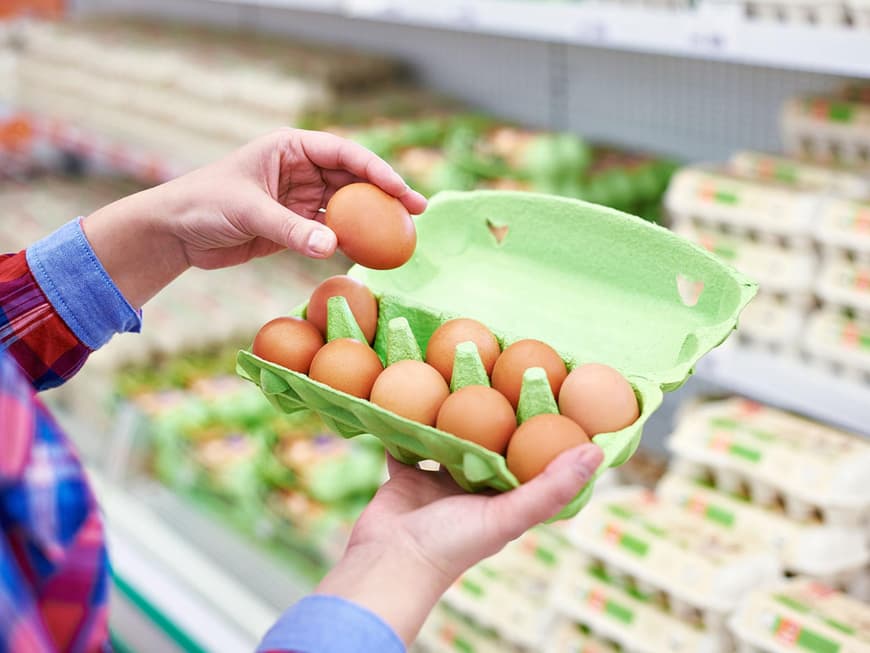
How reliable is the code on egg packaging?
"It provides a good classification of the farming system, i.e. whether an egg comes from organic production, free-range or barn farming. However, it says nothing about whether the animal is doing well. Inspections often only check whether the perches have the required dimensions, for example. However, it is important for animal welfare and consumer protection that the animals are inspected directly."
Why can organic eggs come from large farms?
"Because there are no specifications for flock size, not even for organic flocks. As a result, large farms, some with 30,000 animals, have prevailed in recent years, to the detriment of small farms. An upper limit would be important."
Free-range - why is the term often misleading?
"Chickens only enter a certain area outdoors. They know that they can easily become prey and are afraid to run in an open field. They need protection from bushes or shrubs. However, this is often lacking, so there are no suitable areas for the animals. This is why many chickens do not even leave the coop. And here too, there is no upper limit for the number of animals per barn."
What else goes wrong when keeping chickens?
"A lot of things! For example, the individual groups of animals are too large. Chickens only recognize 30 to 100 other animals. If they are crammed together with several others, they are under a lot of stress and start to peck at their feathers. Poor plumage can also be found in organic flocks. Due to the high laying rate, the chickens also become ill and suffer from organ inflammation. They have been bred to lay 300 eggs a year instead of the normal 30. The feed is also usually not species-appropriate."
What should consumers bear in mind when shopping?
"It's best if they know the farm they are buying eggs from and have seen the hens. In the supermarket, they should choose eggs that carry animal welfare labels or a seal from organic associations such as Bioland or Demeter. Always ask where the eggs come from. Also important: reduce your egg consumption. They can be omitted or replaced in many dishes. For ideas: www.vier-pfoten.de/themen/ernaehrung/vegane-rezepte"
Active for animal welfare
Four Paws
The foundation is committed to the welfare of animals worldwide and provides information on its website about current areas of activity and ways to help. It has developed its own animal welfare label. There is also an overview of current online protests, including a petition against the widespread killing of male chicks: www.vier-pfoten.de/helfen/petitionen
German Animal Welfare Association
The association has also developed its own label, which can also be found on egg packaging. Information on the criteria can be found at: www.tierschutzlabel.info
